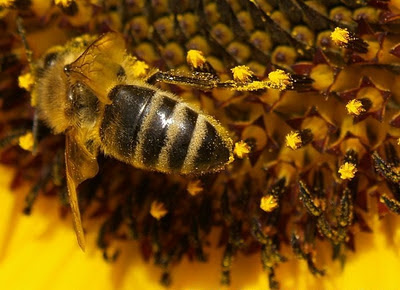Recent researches indicate that wild bees distribute pollen across different types of cropland
"The finding is considered to be an economic implication for farmers in performing crop pollination" says Claire Kremen, Assistant Professor in the Department of Environmental Science, Policy and Management-University of California.
"Pollination is an incredibly important ecological function," Kremen said. Bees function as pollinators because, as they feed on flower after flower, they unintentionally shuttle grains of pollen from one plant to the next. Without bees to do that lifting, many common North American plants—including numerous economically important crops—would go unfertilized and would be unable to reproduce, she said.
The research considered two important factors: How much natural habitat existed near the farm, and whether the farm relied on organic or conventional cultivating techniques.
References:




